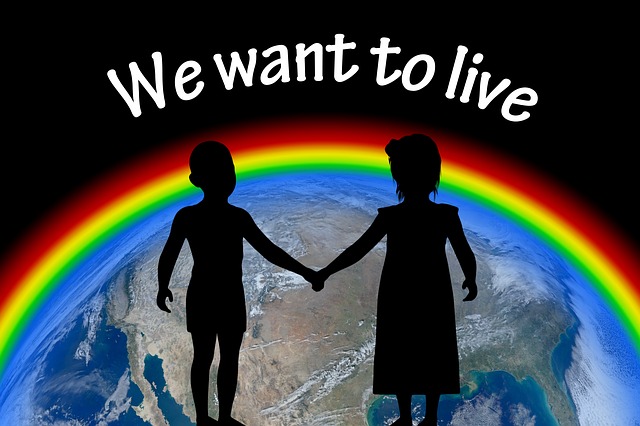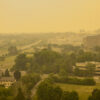Coronavirus News
Coronavirus Bolivia hospitals, funeral homes slammed by coronavirus
Police in Bolivia’s major cities have recovered the bodies of hundreds of suspected victims of the coronavirus from homes, vehicles and, in some instances, the streets. Hospitals are full of COVID-19 patients and short of staff, keeping their gates closed and hanging out signs that say: “There is no space.”A health worker wearing a protective…

Coronavirus
Police in Bolivia’s major cities have recovered the bodies of hundreds of suspected victims of the coronavirus from homes, vehicles and, in some instances, the streets. Hospitals are full of COVID-19 patients and short of staff, keeping their gates closed and hanging out signs that say: “There is no space.”

Police in Bolivia’s major cities have recovered the bodies of hundreds of suspected victims of the coronavirus from homes, vehicles and, in some instances, the streets. Hospitals are full of COVID-19 patients and short of staff, keeping their gates closed and hanging out signs that say: “There is no space.”
The Bolivian government says the peak of the outbreak is not expected until August.
Desperation is growing in one of Latin America’s poorest countries, which seems overwhelmed by the virus even as it endures political turmoil stemming from a flawed election and the ouster of President Evo Morales last year. A plan to hold elections in September, seen as a key to stabilizing its democracy, is increasingly in doubt as the pandemic worsens.
Some funeral homes have hired more staff to cope with the influx of the dead, and hearses at the main cemetery in the capital of La Paz line up daily to deliver bodies. With little space available, the mayor’s office only allows burials for people from the municipality and charges more than most Bolivians can afford for cremation.
“My brother died of pneumonia and we cannot find a funeral home. We have to wait until tomorrow. Many people are going through the same thing and nobody helps us,” said Herminia Carpio, sobbing as she waited to collect her brother’s body at the door of the largest public hospital in La Paz.

Some doctors are issuing falsified death certificates for virus victims, putting funeral home staff at risk, according to an undertaker in La Paz who spoke on condition of anonymity because of the sensitivity of the matter.
A COVID-19 death in Bolivia requires strict safety protocols for handling the body, raising the price of funerals. There are allegations that some relatives have paid doctors to list a cause of death unrelated to the virus. In any case, medical services are overworked and may not have the time or capacity to assess the cause of death accurately.
Coronavirus September election in doubt
Shocking news came this week when police said they recovered 420 bodies from various locations in La Paz and in Bolivia’s biggest city, Santa Cruz, in the span of five days. Between 80 and 90 per cent of them are believed to have had the virus.
“The pandemic has put the state’s response capacity in crisis,” said sociologist Renzo Abrezeze.
Like many other countries, the Andean nation instituted restrictions to curb the spread of the virus but gradually started to lift them June 1 to relieve the economic strain on the population of more than 11 million.
Bolivia has reported nearly 2,300 confirmed deaths from COVID-19, although the real number is believed to be higher. Cesar Salinas, the president of the Bolivian soccer federation, was among the dead. Interim President Jeanine Anez tested positive and says she is recuperating in quarantine.

The political fallout from the pandemic is escalating. A committee that advises the health ministry on outbreak containment measures said in a letter this week to Bolivia’s top election official that holding the vote as scheduled would not be advisable.
Most researchers agree that “to plan activities such as an election, you must wait for the epidemiological curve of active cases to have a sustained decrease for a period of 14 days, so the date of Sept. 6 is not appropriate,” the committee, made up mostly of doctors, wrote to Salvador Romero, president of the Supreme Electoral Tribunal.
The committee has previously said many people who contract the coronavirus do not report their illness for fear of being stigmatized. Many in rural areas do not believe in the existence of the virus, while disregard for physical distancing rules in the cities is making matters worse, according to the committee.
Six of the eight parties in Bolivia’s election race have said they favour a postponement.
Coronavirus Demand for fake cure
Some Bolivians desperate to avoid or cure COVID-19 are ingesting chlorine dioxide, which the senate has approved as a treatment even as the country’s health ministry says people should stay away from it.
Chlorine dioxide is a bleach-like substance that the U.S. Food and Drug Administration has warned can jeopardize consumers’ health and should not be purchased or drunk as a medical treatment.
But in the Bolivian city of Cochabamba — where the provincial government has approved its use — some shoppers said they believed the substance could help.
“I heard on the news that they were selling chlorine dioxide at the pharmacy. Acquaintances of mine took it, one for prevention and one for healing. It is doing them good,” said Eric Ocanha, outside of a pharmacy.
Others said they were confused about the advice they had been given.
“As always, the authorities say: ‘Consult your doctor.’ Which doctor? The poor do not have a doctor,” said Dionisio Flores.
Dr. Rene Sahonero, an adviser to the health ministry, said the ministry strongly warned against the use of chlorine dioxide for COVID-19.
“We have already drawn up a resolution that says this substance is not approved, that it is not suitable for human consumption and that it can have serious consequences,” Sahonero said, adding that cases of chlorine dioxide poisoning had been reported.
Despite the ministry warning, the country’s senate passed a bill last week approving the use of chlorine dioxide to prevent and treat the coronavirus. That must pass the lower chamber and survive a veto challenge before it becomes law.

Subscribe to the newsletter news
We hate SPAM and promise to keep your email address safe



















